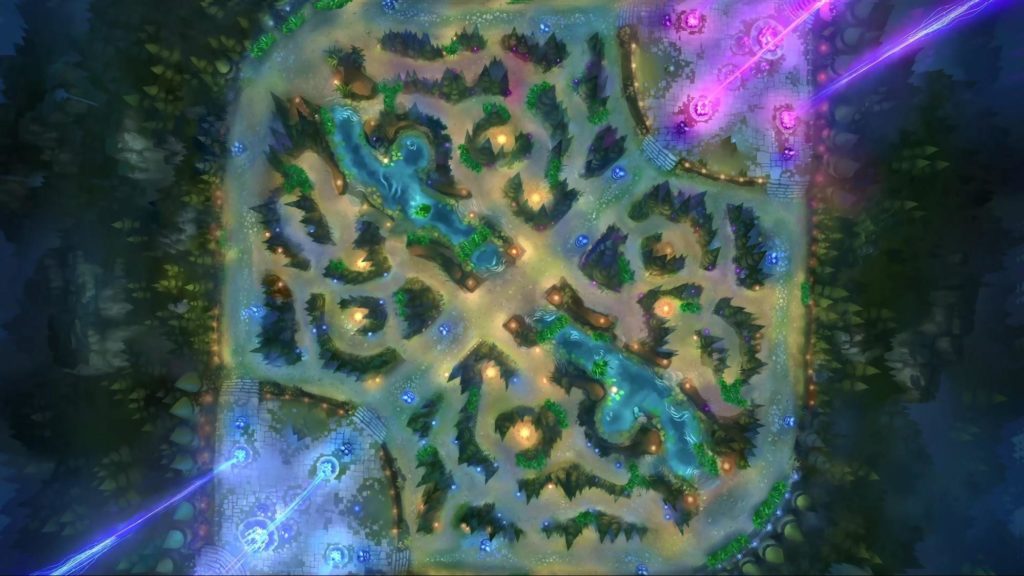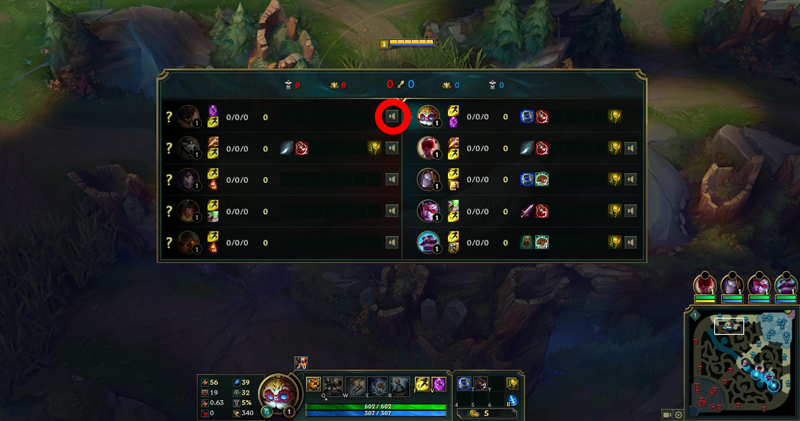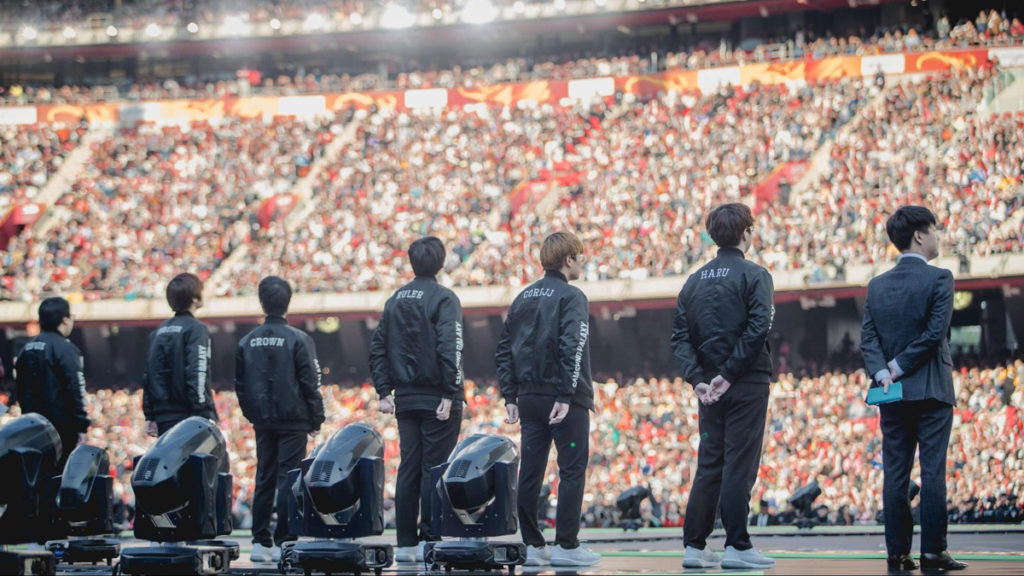Building skills in League of Legends can be a big challenge, since the game is constantly evolving. Simply logging lots of hours in the game in hopes of improving isn’t that effective, and sooner or later you’ll plateau.
What really can really help you take your game to the next level isn’t actually tied to the mechanics of playing the game; it’s all about your foundation. Today we’ll focus on foundational elements of League of Legends that will get you a lot farther and improve your skills faster. This list of tips and tricks are essential if you want to climb in ranked, or simply become a better player regardless of the game mode.
How to become a champion in League of Legends
Map awareness

You should always treat the Summoner’s Rift as a whole, regardless of your role. For a good portion of each game, you will only inhabit a small portion of it, but as the game develops you will move from your lane/jungle and become a part of a five-man unit that will contest enemy structures and objectives. While laning, you should always look at the mini-map every couple of seconds, but also keep in mind where the enemy laner/jungler was last seen. League is a game of pathing, and there is only a set number of possibilities for every situation; by having a good read on the enemy jungler or laner you can evade countless ganks.
So how does this manifest in actual League play?
If you’re the ADC and you don’t see the enemy midlaner on the map, then perhaps pushing and going for trades isn’t the most logical decision. Likewise, if you notice your lane opponent playing a bit differently and trying to provoke a fight, it probably means the enemy jungler is in close proximity.
If you’re going for a push on a sideline (top or bottom), then pay very close attention to where the enemy team was last seen. If you don’t keep track, you will get collapsed upon very quickly.
Communication
Talking to your teammates from the very beginning is the single most important thing while in-game. From the pick and ban phase to the final moments of the game, you should exchange thoughts, warnings, and advice whenever possible.
- If you’re jungling, make sure to ping and communicate your intentions as early as possible – most players don’t react that quickly, and they might not even see your champion icon on the map in time to assist the gank.
- If you’re a support, always ping your ADC to back off a bit when you’re off to place a couple of wards. Experienced enemy duos almost always capitalize and go all-in on an abandoned player.
- If you’re laning and notice an enemy place a ward in the nearby brush, make sure to ping it to your jungler so that they don’t waste precious time by waiting in close proximity.
- Always ping missing opponents if you’re on a lane. If you’re jungling and recognize the pattern the opposing jungler is taking, call it out in chat so that your teammates can be careful.
Vision control (and vision denial)
This is an incredibly important aspect of League of Legends. By seeing your opponent’s intentions and movements, you will be able to predict and counter-engage but also evade ganks from the enemy jungler/laner.
While your support does the majority of the work with regard to vision control, you can help out quite a bit by buying Vision wards (75 gold apiece) whenever you have an open slot and placing them on certain points of the map. These wards last until they’re destroyed (but are limited to one per player), and they can very easily give you control of a smaller portion of a map (or very important passages and choke points).
If you watch any high-level competitive League game, you will see that every member of the team constantly buys and refreshes vision on the map. This is incredibly important in every stage of the game, and if your support wards correctly and intelligently you will evade a lot of unnecessary deaths and team fights.

Playing what the team needs + adaptation
Obviously, playing what you’re good at is the most logical route when you queue up for a game; however, sooner or later you will find yourself in a situation where your champion isn’t really the best possible pick. When that happens, you should be prepared. It’s illogical to play a 50 minute game and lose it because everyone played what they wanted instead of what was needed.
If you’re a support and your team composition doesn’t have any tanks, then it would be logical to go for a pick like Braum or perhaps Leona. If you’re a midlaner and you have an AD top and a tanky support, going for an AD mid champion like Zed isn’t the best choice, as your opponents will have an easier time defensively itemizing against your whole team. (Always try to have a mix of physical and magic damage.)
The willingness to adapt is incredibly important, because playing just one or two champions in your role limits your possibilities and essentially pushes your team into a corner. While “one-tricking” is often recommended for beginners, it’s not good for long-term growth. When you’re flexible you can react and counter both enemy champions and team comps.
Positivity, muting, perseverance and mental fortitude
League of Legends is a beautiful, complex game, and you will find a lot of positivity and friendship on the Summoner’s Rift. That said, toxicity – as with any other online competitive game – is a frequent sight. There is generally nothing that you can do to fix it, but there are a couple of things that you can do in order to prevent it from impacting your own level of play.
When someone is flaming, either on your team or the opposing team, the easiest (and most effective) thing you can do is to simply mute them. You can mute their chat messages, pings, and even emotes. By doing this you instantly get a pretty silent ambient – no chat messages will be popping up, you will exclude yourself from a bad atmosphere and in return be able to fully focus on your own play.
To be frank, winning is a team effort, and good individual play doesn’t necessarily guarantee overall success. But if you’re doing your part of the job, the leads you create can transfer over to the rest of your team.
If you have a bad game and start off horribly, try to adapt and play what your team needs. If you’re a toplaner and you were camped by the enemy jungler,then simply build defensive tanky items. If you’re at a big deficit early on, you won’t have the time and resources to build enough damage to be a factor come mid/late game, so building health and armor/magic resist goes a long way. It doesn’t matter how badly you begin, because you can always have an impact in the game.

Taking a break
Now, this is a mistake most players make very frequently. If you’re having a bad day – if you’re not playing at your usual level – then make sure to take a break and continue in a couple of hours or the day after. We all have bad days, and it’s important to acknowledge that.
Follow the competitive scene
This part is somewhat subjective, but there is nothing better than watching the best players in the world clash on the Rift on a weekly basis. You can’t imagine how much you could improve by just watching professional players (either when they play on the big stage or when they stream). You can see how they play the champions you love, but perhaps more important, you get to learn from their mentality and approach to every element of the game (laning phase, 1v1, 2v2, team fighting, decision making, and so on).

Learn the champions you play in-and-out
This one might seem a bit simple, but it’s key. Decide which champions you will “main” and be relentless! Learn them to their core, and experiment with multiple builds and runes until you find what is most viable for your personal playstyle. And above all, try to play against as many champions as possible in order to test out your limits and counters. So next time you queue up for a normal or ranked game, you will be ready regardless of your opponent.
Playing those champions should become second nature; you should know your cooldowns and strengths and weaknesses in every matchup and in every stage of the game.
Also, it’s important to be flexible once the game starts – you’re not always going to get your main role! Try to master two roles so that if you get your second one you’re not the weak link on your team.
Improve through all means
League of Legends is endlessly fun and complex. There are so many ways to improve and so many things to learn. Play as much as possible but always analyze what you did – think about the series of events that led to a good or bad play. And try to think like your opponents, as in “What are the chances that I’m going to get dove underneath my turret when my opponent gets to level six?”
Read and research when you have the time – there are thousands of incredible resources and knowledgebases online. If you have a question regarding a matchup or build – chances are someone already asked it! Use this to your advantage in order to hone your skills.
Here are just a couple of fantastic sites:
http://champion.gg/ – see in-depth statistics regarding each role and champion, as well as most used builds by players ranked Platinum+
http://na.op.gg/ – a great site used for getting detailed information for any player (on any server)
https://www.reddit.com/r/LoLeventVoDs/ – videos from all recently played competitive matches
http://www.probuilds.net/ – check what every professional League player is building on any champion
https://www.mobafire.com/ – user-written guides for all champions (do have in mind that they vary in quality)
https://www.reddit.com/r/summonerschool/ – a fantastic part of the League Reddit community focused on beginners
For a much longer list, check out these links:
https://www.reddit.com/r/summonerschool/wiki/resources
https://www.reddit.com/r/leagueoflegends/wiki/resources
https://www.reddit.com/r/leagueoflegends/comments/43xm9h/useful_lol_websites_and_resources_2016_edition/


